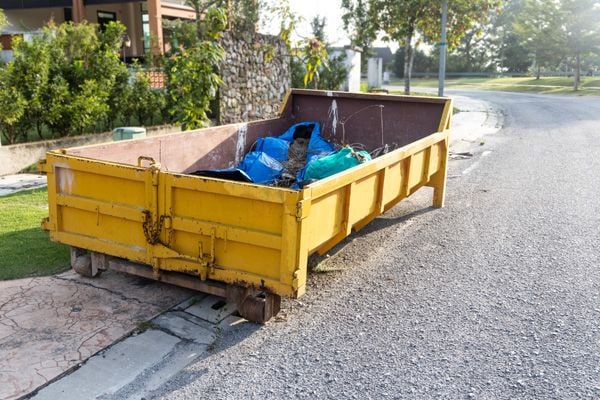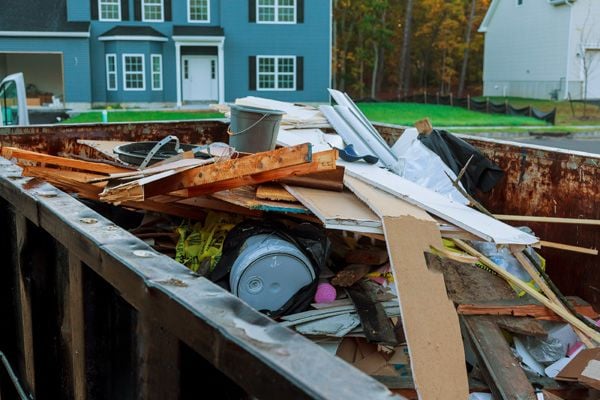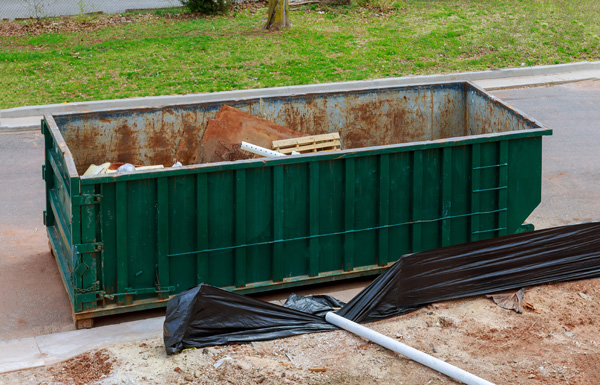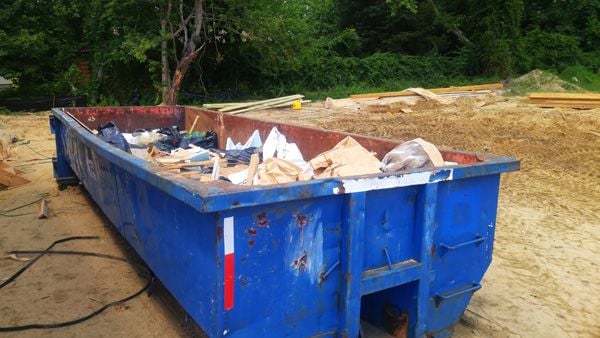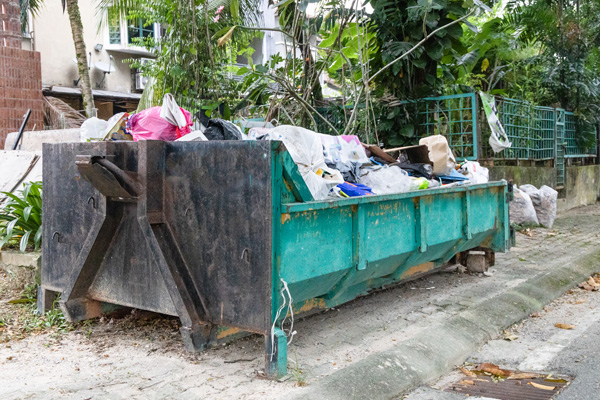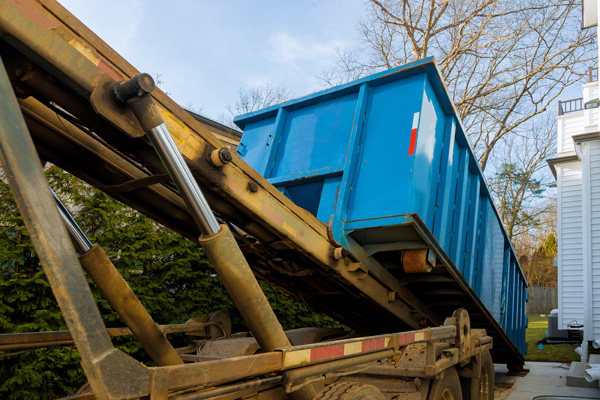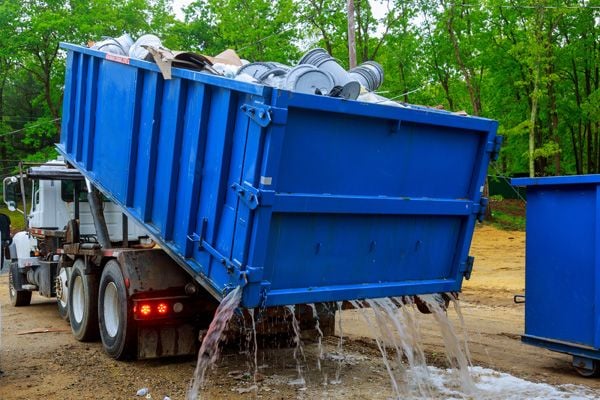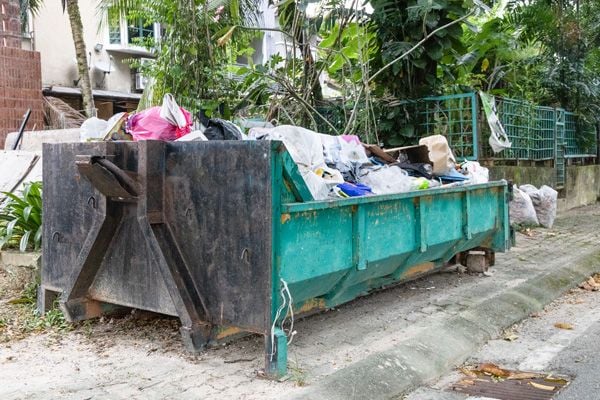Dumpster Rentals For Home Renovation Projects: Tips And Tricks
It is a coincidence that the need for dumpster rentals often coincides with home renovation projects. Home improvements can be expensive and time-consuming, yet they are necessary to maintain one’s living environment in top condition. It is important to understand how to rent a dumpster so that it meets an individual’s needs and budget while completing their project efficiently. This article will discuss tips and tricks on how to best utilize dumpster rental services during home renovation projects. Renovating homes often creates large amounts of debris which must be disposed of properly in order to abide by local laws and regulations. Dumpsters provide a convenient way to dispose of these materials without having to make multiple trips to the landfill or other disposal center. The right size dumpster should be chosen depending on the scale of the project as well as any special requirements related to disposing certain items such as hazardous waste. Additionally, some companies may offer discounts if larger volumes of waste are collected at once through renting additional dumpsters over multiple days, weeks, or months. When selecting a company from whom to rent a dumpster, research should be conducted into both pricing and customer service reviews in order to ensure satisfaction with the overall experience. A reputable dumping service should also have staff available who understands the specific details about different types of wastes and when/where it is acceptable for them to be disposed of safely. Understanding all aspects involved in obtaining proper dumpster rentals before starting a project allows homeowners peace of mind knowing that all trash will be taken care off properly throughout their renovations process. Benefits Of Renting A Dumpster For Home Renovations Renting a dumpster for home renovations can be seen as an essential tool in the handyman’s proverbial belt. It is often overlooked, but it can provide many benefits and make a remodeling project much easier to manage. From residential dumpster rentals to deliveries of various sizes, there are numerous services available when considering renting a dumpster. When planning renovation projects, it is important to find the right size dumpster rental service that suits your needs. Depending on the scope of the job and amount of debris generated from demolition or construction, you may need more than one size dumpster delivered. Before beginning any major project, consider researching local dumpster rental companies as they will have different delivery options tailored specifically for residential customers. It is also wise to factor in additional costs associated with renting a dumpster such as delivery fees, daily rates and weight restrictions before committing to any company’s services. Doing research ahead of time could save you money and ensure efficient removal of waste materials during your remodeling project. Planning accordingly allows for the most cost-effective use of your resources so that you can stay within budget while still getting desired results from your renovation efforts. How To Estimate The Amount Of Debris For A Project Estimating the amount of debris for a project can be difficult, especially if it is larger in scope. Knowing how much waste will need to be disposed of during a construction or renovation project is essential when determining the size and type of dumpster needed. Cubic yards are commonly used as a standard unit of measurement when estimating amounts of yard waste from such projects. Before renting, homeowners should consider how large their yard or construction project is and what types of materials may need disposal throughout the rental period. For smaller projects, such as landscaping or relatively small jobs around the house, typically 10-15 cubic yards will suffice; however larger projects often require more substantial dumpsters. Homeowners with bigger jobs should anticipate needing 20-30 cubic yards depending on the amount and type of material being removed (e.g., dirt, concrete). When in doubt, opt for a larger dumpster size; this allows for some extra space that could come in handy down the line. When estimating debris amounts, research into local regulations concerning waste disposal can also be beneficial and help ensure compliance with local laws governing dumping practices at landfills or transfer stations. Understanding these rules before starting any renovations will make sure that all waste removal is done safely and efficiently without incurring unnecessary fines or penalties due to improper disposal methods. Finding The Right Size Dumpster For Your Project When it comes to home renovations and demolition projects, finding the right size dumpster is like having a piece of the puzzle. Every project has its own needs for waste removal, so understanding what type of roll off dumpsters are available and their sizes can help you get your improvement or demolition project on track. From yard dumpsters to larger containers that are specifically designed for heavy debris, there are several options when it comes to rental dumpsters: • 10-15 Yard Dumpsters – Ideal for small scale improvement projects such as bathroom remodels or kitchen upgrades; • 20-30 Yard Dumpsters – Perfect for medium sized cleanout jobs such as basement cleanouts, garage cleaning out, landscaping work; • 40+ Yard Dumpsters – Most suitable for large scale renovation projects involving demolitions; • Specialty Dumpsters – Capable of handling hazardous materials safely and securely. By taking into consideration the scope of your project before renting a dumpster, you will be able to make an informed decision about which type and size best suits your needs. Having this knowledge in hand helps ensure that you have enough space to store all your debris without having too much extra capacity or not enough room at all. Knowing these details upfront can save time and money in the long run. In order to accurately calculate how many yards of debris will need disposal during a particular job, understanding the cost associated with each rental unit is essential. Understanding Dumpster Rental Costs Finding the right dumpster for your renovation job is a must, but it isn’t quite enough. Once you have settled on a size and type of residential roll off dumpsters that fit your needs,
Dumpster Rentals For Home Renovation Projects: Tips And Tricks Read More »

